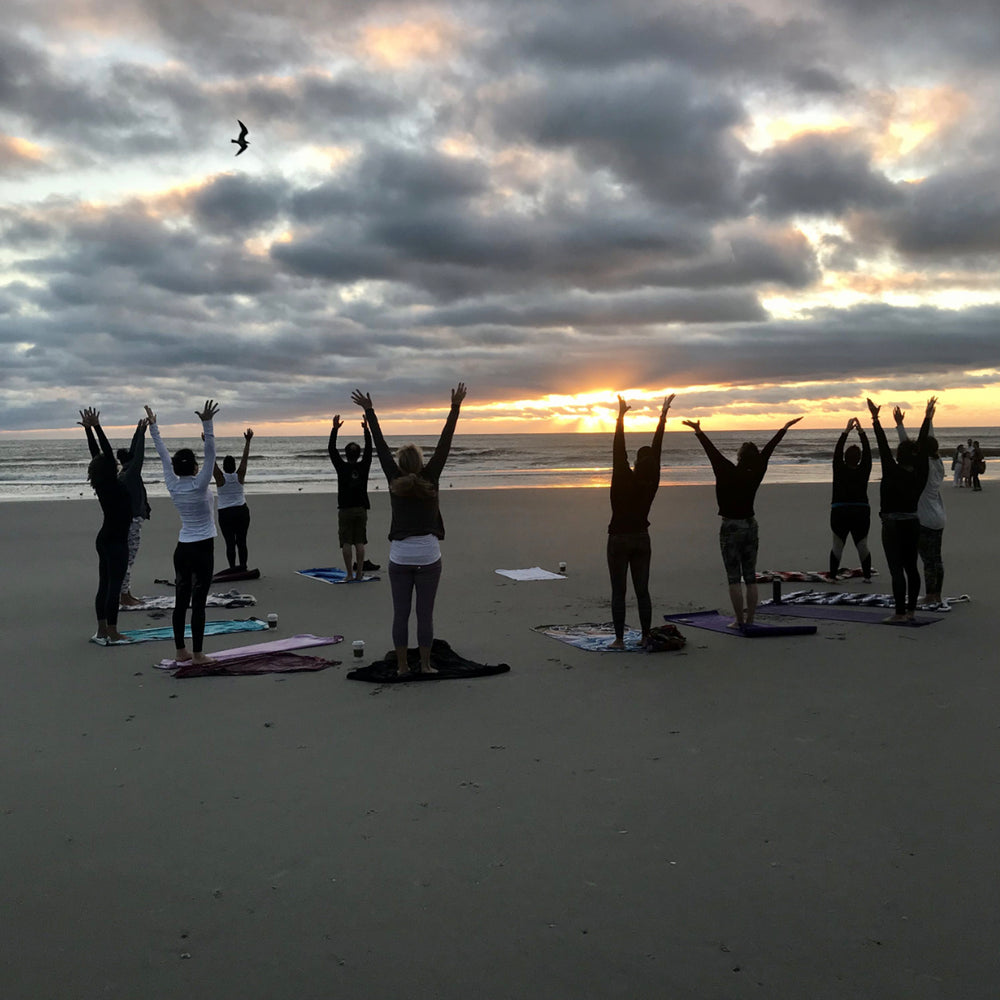
In a world filled with societal pressures, self-doubt, and external expectations, the journey to self-acceptance can be a challenging one. Yoga, an ancient practice that harmonizes the mind, body, and soul, offers a transformative path to self-acceptance and self-love. In this article, we will explore how yoga can lead you on a profound journey of self-discovery, helping you embrace your true self and find inner peace.
The Struggle with Self-Acceptance
Before delving into the role of yoga in self-acceptance, it's essential to understand the common struggles many people face in accepting themselves:
1. Comparisons: Constantly comparing oneself to others can lead to feelings of inadequacy.
2. Negative Self-Talk: Inner criticism and negative self-talk erode self-esteem.
3. Societal Pressures: External pressures to conform to certain standards can be overwhelming.
4. Past Traumas: Unresolved past traumas can hinder self-acceptance.
5. Fear of Judgment: Fear of judgment from others can stifle self-expression.
The Transformative Power of Yoga
Yoga, originating from ancient India, is more than just a physical practice. It encompasses a holistic approach to well-being, addressing the physical, mental, and spiritual aspects of life. Here's how yoga can guide you on the path to self-acceptance:
1. Mindfulness and Self-Awareness
Yoga encourages mindfulness, the practice of being fully present in the moment without judgment. Through breath awareness and meditation, you learn to observe your thoughts and emotions without attachment. This self-awareness helps you recognize negative thought patterns and self-criticism, allowing you to replace them with self-compassion.
2. Embracing Imperfections
Yoga teaches that imperfection is a part of the human experience. As you flow through asanas (yoga poses), you may wobble, lose balance, or struggle. Yet, these moments are opportunities to practice self-acceptance. Instead of berating yourself, you learn to acknowledge imperfections with kindness and understanding.
3. Body Positivity
Yoga encourages a positive relationship with your body. It emphasizes the importance of body functionality over appearance. As you progress in your practice, you gain strength, flexibility, and mobility, appreciating your body for what it can do rather than how it looks. This shift in perspective can lead to greater body confidence.
4. Letting Go of Ego
In yoga philosophy, the ego (the sense of self) is often seen as a source of suffering. Through surrender and letting go in poses, you practice releasing the ego's grip on your identity. This process of letting go can extend to off the mat, allowing you to release the need for external validation and approval.
5. Self-Care and Self-Compassion
Yoga encourages self-care practices, both physical and emotional. Restorative yoga and meditation offer moments of self-compassion and self-nurturing. By prioritizing self-care, you reinforce the idea that you are worthy of love and attention, fostering self-acceptance.
6. Overcoming Fear and Judgment
Facing challenging yoga poses can mirror real-life challenges. As you work through fear and self-doubt on the mat, you build resilience that extends beyond yoga. This newfound strength helps you face judgment and criticism with greater confidence.
Yoga Practices for Self-Acceptance
Here are specific yoga practices and principles that can aid your journey to self-acceptance:
1. Ahimsa (Non-Harming)
Ahimsa is one of the core principles of yoga, emphasizing non-harming, both to others and oneself. Cultivating self-compassion and refraining from self-criticism aligns with this principle.
2. Loving-Kindness Meditation (Metta)
Loving-kindness meditation, or metta, involves sending well-wishes to oneself and others. Regular metta practice can foster self-love and compassion.
3. Restorative Yoga
Restorative yoga uses props like blankets and bolsters to support deep relaxation. This practice encourages self-nurturing and self-acceptance.
4. Journaling
Keeping a yoga journal can help you reflect on your practice and your journey toward self-acceptance. Writing down your thoughts and feelings can provide clarity and insight.
5. Body-Positive Yoga Classes
Seek out yoga classes or instructors that promote body positivity and self-acceptance. These classes create a safe space for you to explore your practice without judgment.
6. Yoga Retreats and Workshops
Consider attending yoga retreats or workshops focused on self-discovery and self-acceptance. Immersive experiences can accelerate your journey.
Challenges on the Path to Self-Acceptance Through Yoga
While yoga is a powerful tool for self-acceptance, it's essential to acknowledge that the journey may still have challenges:
1. Patience: Self-acceptance is a process that takes time and patience. Be gentle with yourself as you navigate this journey.
2. Resistance: The ego may resist change, clinging to familiar patterns. Recognize resistance as a natural part of growth.
3. Comparisons: Even within yoga, comparisons to others can arise. Remember that each person's journey is unique.
Embracing the Journey
The path to self-acceptance through yoga is not a destination but a continuous journey. It's about embracing your authenticity, acknowledging your worthiness, and practicing self-love. With commitment and dedication, yoga can serve as a powerful catalyst for this transformation. As you step onto your yoga mat, remember that every breath, every pose, and every moment of self-compassion brings you closer to the profound sense of self-acceptance you seek. In the end, it's not about reaching a perfect state but about recognizing the beauty and wholeness that already exists within you.
|



















